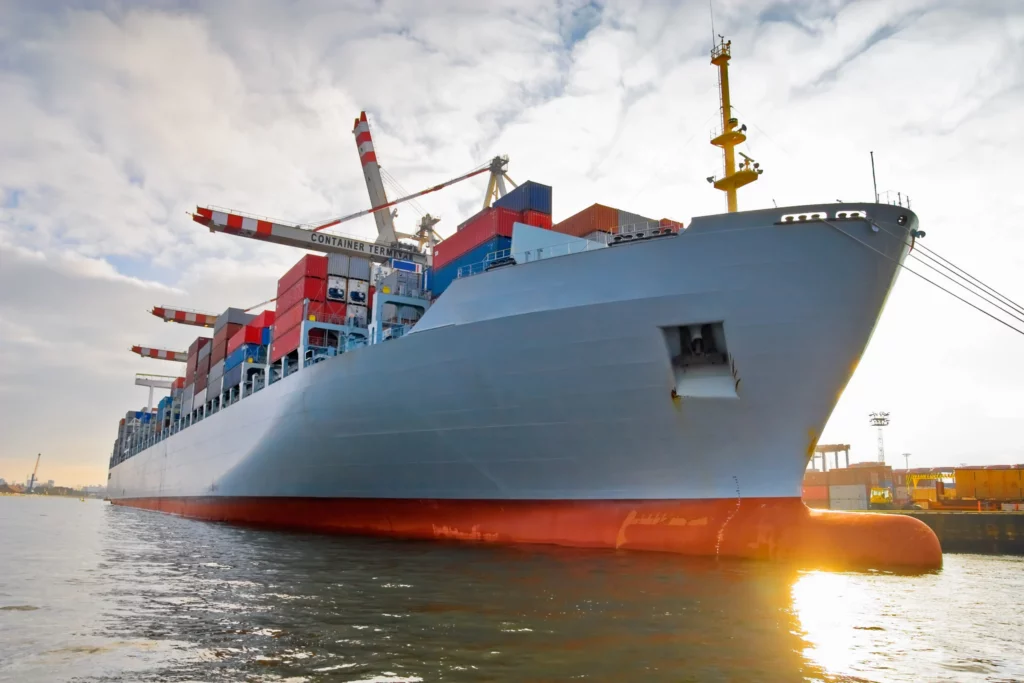Are you one of those who want to make it big in the maritime industry but don’t know where to start? Or, maybe, you’ve heard that it’s a lucrative career option but aren’t sure about the details? Whatever your reason for wanting to learn more about this field may be, I’m here to tell you all about it and help you explore the prospects of a career in maritime transport. Read on and find out why this is such an attractive career choice!
Introduction to Maritime Transport
Maritime transport is the process of transporting goods and passengers by sea. It is a large industry that plays a vital role in the global economy, moving trillions of dollars worth of goods each year.
There are many different types of maritime transport, including container ships, oil tankers, cruise ships and ferries. Each type of vessel has its own unique set of challenges and opportunities.
Working in maritime transport can be a very exciting and rewarding career. There are many different job roles available, from ship captain to marine engineer, and the industry offers good wages and prospects for advancement.
If you’re interested in exploring the prospects of a career in maritime transport, read on for more information.
Different Types of Job Opportunities within the Field

There are many different types of job opportunities within the field of maritime transport. Some examples include working as a captain or first mate on a commercial vessel, working as a deck officer on a passenger ship, or working as a port engineer responsible for ensuring the safety and efficiency of the port’s operations.
There are also numerous other positions available within maritime transport, such as dockworkers who load and unload ships, seaman who work on the decks of vessels, and chefs who prepare meals for crew and passengers. With such a wide range of positions available, there is sure to be a role that suits your skills and interests.
Maritime transport is an exciting and varied field with plenty of opportunity for career progression. Whether you’re looking for an entry-level position or aiming to climb the ranks to become captain of your own ship, there is a place for you in this dynamic industry.
The Benefits of Working in Maritime Transport
A career in maritime transport can offer a number of benefits, including the opportunity to travel and see the world, competitive wages, and job security.
Those who work in maritime transport often have the opportunity to travel to different parts of the world. This can be a great way to see new places and experience different cultures. For many people, this is one of the most appealing aspects of a career in maritime transport.
In addition to the opportunity to travel, those who work in maritime transport often enjoy competitive wages. Maritime transport is an important industry, and workers with specialized skills are in high demand. As a result, those who work in this field often earn above-average salaries.
Finally, a career in maritime transport can offer job security. The demand for maritime transportation services is unlikely to decrease anytime soon, so those with experience and training in this field should be able to find consistent work.
The Challenges and Drawbacks to a Career in this Sector
Careers in maritime transport can be extremely rewarding, but they are not without their challenges and drawbacks. Perhaps the most significant challenge is the ever-changing nature of the maritime industry, which can make it difficult to predict job prospects and earnings potential. The industry is also subject to strict regulation, which can make it challenging to stay up-to-date on the latest changes.
Another potential challenge is the physical demands of the job, which can include long hours spent working on deck or in cramped conditions. maritime transport workers also need to be comfortable with extended periods of time away from home, as many positions involve lengthy voyages.
Despite these challenges, careers in maritime transport can be highly rewarding for those who are passionate about the industry. The ability to see the world, work with cutting-edge technology, and contribute to global trade are just a few of the benefits that make this sector an attractive option for many people.
Requirements and Qualifications Needed for Entry Level Positions
Maritime transport is a complex and dynamic industry that offers many opportunities for career growth and development. To be successful in this industry, it is important to have the right skills and qualifications.
Some entry level positions in maritime transport may require specific qualifications, such as a merchant mariner credential or a Transportation Worker Identification Credential (TWIC). Other positions may not have any specific requirements, but it is always beneficial to have relevant education and training.
Some essential skills and qualities that are needed for success in maritime transport inclu
- Strong communication skills
- Ability to work independently and as part of a team
- Strong organizational skills
- Knowledge of maritime regulations and procedures
- Ability to safely operate maritime equipment
Salary Prospects and Career Advancement Options
Could a career in maritime transport be for you? Let’s explore the salary prospects and career advancement options available in this exciting industry.
Maritime transport is a vital part of the global economy, responsible for transporting goods and passengers between countries. It’s an industry that offers good job prospects and salaries, as well as opportunities for career advancement.
Salaries in maritime transport vary depending on your role and experience level, but they are generally competitive. For example, captains and first officers can earn upwards of $100,000 per year. There are also many opportunities for overtime pay and bonuses.
Career advancement options in maritime transport are excellent. You can move up the ranks to become a captain or first officer, or you can move into management roles such as port manager or shipping company executive. There are also plenty of opportunities to start your own maritime business.
If you’re considering a career in maritime transport, there’s no need to worry about finding a job or earning a good salary – there are plenty of opportunities available. So why not start exploring the possibilities today?
Conclusion
In conclusion, a career in maritime transport is an attractive option for those seeking to live an exciting and rewarding life involving travel. Those interested in the maritime industry offer varied job opportunities with wide salary bands and prospects of growth as long term commitment yields good rewards. Maritime transport can be greatly beneficial to both employers looking for experienced seafarers, as well as qualified individuals who are passionate about travelling and strive for continuous learning and diverse experience. With the rise of international trade, many new roles are being created making this sector even more vibrant today than ever before.







